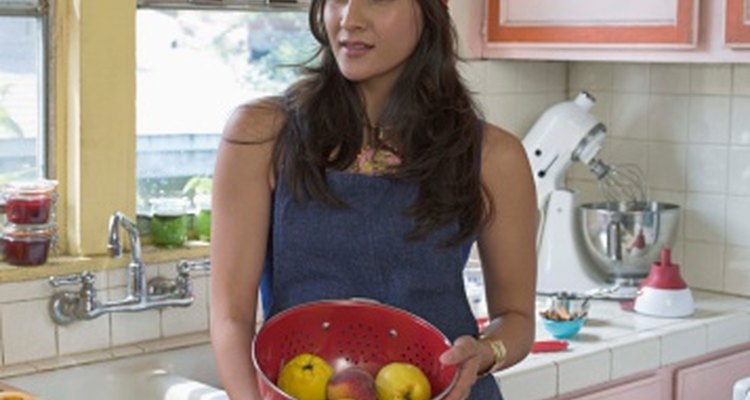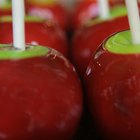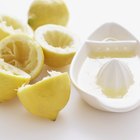
Apples come in a variety of colors, flavors and names and are available for purchase at most grocery stores, farmers markets and produce stands. Once purchased, apples can be stored in a refrigerator or on a counter for several days, and up to a week or more, before the apple starts to decay. The reasons why an apple will start to rot depends on several factors and may influence how long the apple lasts, or even how it tastes over time.
Bacteria
All produce is exposed to varying levels of bacteria, and the level of bacteria on the surface or interior of an apple will directly affect how quickly the apple will rot. If the skin begins to get soft, the bacteria can enter the apple through microscopic tears in the skin, increasing the speed at which the apple will ripen. If the apple is exposed to other bacteria through other foods or countertop surfaces, the ripening can happen even sooner.
Mold
Believe it or not, mold spores are present on almost all produce and occur while the food is still growing on the tree. These spores may grow and hasten in warm, moist conditions such as a kitchen, and may make the apple soften and rot even faster. Placing apples in a refrigerator can slow the growth of mold spores on apples.
Wax/Preservatives
Most apples that are purchased at grocery stores have a light layer of wax or other preservatives to help make the apple look shiny and to slow the ripening of the fruit to help make it last longer. Note that apples that are organic or are purchased directly from the grower at a farmer’s market will not have a layer of wax, and will likely ripen and rot much faster than those shiny apples from the national grocery chain.
Natural Chemicals
All fruit has natural enzymes that are partially responsible for the growth and maturation of the produce. This helps the fruit go from hard to ripe and then to the point of rotting. If the ripening process is hastened by placing the apples in a brown paper sack, the enzymes will emit ethylene oxide and the apples will ripen much faster.
Related Articles

How to Freeze Apples With Lemon Juice

How to Rehydrate Dried Apple Slices

How to Preserve Fresh Apples

Why Is an Apple Good for You?

Does a Kiwi Turn Brown?

How to Store Apples

Why Do Banana Peels Turn Brown?

How to Ship Candy Apples

When Are Red Delicious Apples Ripe?
Easy Homemade Apple Pie Filling Recipe

How to Poach Apples

How to Ripen Blackberries
Does Baking Soda Prevent Apples from ...

Why Does Lemon Juice Stop Apples From ...

How to Make Old Fashioned Apple Jelly

How to Soften Hard Sugar Cookies

If Pippin Apples Are Not in Season, ...
How to Keep Granny Smith Apples From ...

Can You Make Cider From Cooking Apples?

Rolled Oats vs. Quick Oats for Apple ...
Writer Bio
Meredith Jameson writes early childhood parenting and family health articles for various online publications. She holds a Bachelor of Arts in history from San Francisco State University.
Photo Credits
Jupiterimages/Brand X Pictures/Getty Images